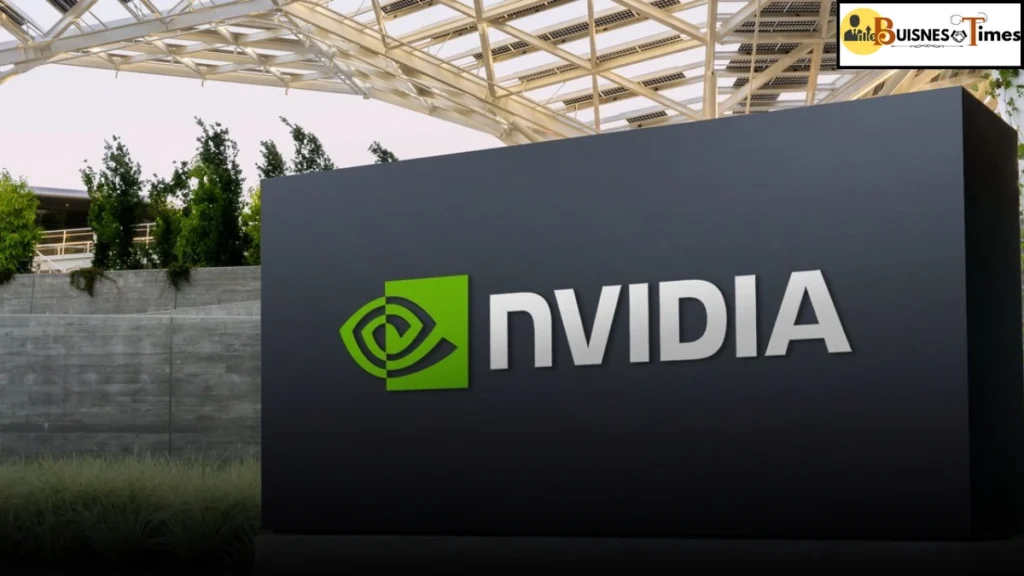In a move that could reshape the ongoing U.S.-China tech rivalry, U.S. President Donald Trump has hinted he may allow Nvidia to sell a toned-down version of its next-generation AI chip, the Blackwell, to China.

The announcement comes amid heightened global scrutiny over artificial intelligence capabilities and fears in Washington that Beijing could use advanced U.S. technology to accelerate its military and AI development.
A New Chapter in the AI Chip Battle
On Monday, Trump told reporters that Nvidia CEO Jensen Huang had a “somewhat reduced” version of the Blackwell chip ready for potential sale to China. The U.S. leader suggested this scaled-down variant would have its computing power slashed by 30% to 50% compared to the flagship model sold in America.
“Jensen also has the new chip, the Blackwell. A somewhat enhanced-in-a-negative-way Blackwell… In other words, take 30% to 50% off of it,” Trump said. “That will be an unenhanced version of the big one.”
If approved, the deal could enable China to gain access to advanced AI computing hardware—albeit less powerful—despite U.S. export restrictions.
Revenue-Sharing Deal Raises Eyebrows
This development follows Trump’s recent announcement of a rare and unprecedented revenue-sharing agreement with both Nvidia and AMD. Under the arrangement, the companies will give 15% of revenue from certain AI chip sales in China to the U.S. government.
The deal has sparked mixed reactions in Washington. For years, lawmakers from both political parties have pushed to limit Beijing’s access to U.S. AI chips, fearing that even scaled-down models could still be used to build frontier-level AI supercomputers.
Saif Khan, former White House National Security Council technology adviser under President Biden, warned:
“Even with scaled-down versions of flagship Nvidia chips, China could buy enough to develop world-leading AI systems. This could let them leapfrog America in AI capabilities.”
The H20 Chip and Previous Restrictions
Currently, the most advanced Nvidia chip approved for sale to China is the H20, built on the company’s older Hopper architecture. This chip was specifically designed to comply with U.S. export controls put in place by the Biden administration in 2023.
Nvidia began selling the H20 in China in early 2024, but its distribution was halted in April 2025 when the Trump administration tightened restrictions. However, the company announced last month that it had received clearance to resume shipments of the H20 to China.
Trump dismissed the chip’s significance, calling it “obsolete” and claiming China already had access to it.
“The H20 is obsolete,” Trump said. “So I said, ‘Listen, I want 20% if I’m going to approve this for you—for the country.’”
While the exact terms are still being finalized, the U.S. Commerce Department has already started issuing licenses for H20 sales to China, stating that these chips do not compromise national security.
Blackwell – Nvidia’s AI Powerhouse
Nvidia unveiled its Blackwell AI chip platform in early 2024, claiming it was up to 30 times faster than its predecessor. The flagship version, designed for U.S. markets, is considered a groundbreaking leap in AI computing power.
Sources told Reuters in May that Nvidia had been working on a China-specific variant of the Blackwell chip, with significantly lower performance and a lower price. However, the company has not officially confirmed these reports or disclosed the chip’s technical specifications.
Geopolitical Tensions Behind the Deal
The potential approval for scaled-down Blackwell sales comes against a backdrop of intense U.S.-China technology competition. Washington has spent the past few years trying to keep Beijing several generations behind in AI hardware, citing concerns over military applications.
China’s Foreign Ministry has accused the U.S. of using export restrictions as a way to “maliciously contain and suppress China.” The ministry has yet to comment on Trump’s latest remarks about potential AI chip sales.
AMD Also Gets a Green Light
Nvidia is not the only company involved. AMD confirmed that the U.S. government had approved some of its applications to export AI processors to China. However, AMD did not comment on whether it would take part in the revenue-sharing agreement with the U.S. government.
Both companies have stressed they comply fully with all U.S. export regulations.
Why Critics Are Concerned
The main fear among critics is that performance restrictions on AI chips might not be enough to stop China from assembling large-scale systems with collective computing power comparable to U.S. models.
Even if individual chips are weaker, purchasing them in massive quantities could give China the capability to run AI training models at a global scale.
A Rare U.S. Corporate Intervention
Trump’s decision to demand a share of corporate revenue in exchange for export approval is highly unusual. This move follows other high-profile interventions in the tech sector, including pressuring companies to manufacture more in the U.S. and even calling for the resignation of Intel’s CEO over his ties to Chinese firms.
While supporters say the revenue deal could help boost U.S. coffers and ensure accountability, critics argue it may set a troubling precedent for government intervention in corporate deals.
What Happens Next
At the moment, the U.S. Commerce Department is working through the legal and logistical details of the revenue-sharing agreement.
Industry experts say much will depend on how much performance is reduced in the China-specific Blackwell chip, and whether Washington believes the reduction is enough to protect U.S. national security interests.
For Nvidia, the Chinese market represents billions of dollars in potential revenue, making any opportunity to sell—even a restricted product—financially significant.
Trump’s potential green light for Nvidia’s scaled-down AI chip sales to China marks a pivotal moment in the U.S.-China tech rivalry. Supporters see it as a smart compromise that boosts American revenue while limiting China’s access to top-tier AI power. Critics, however, warn that even weaker chips could help Beijing close the gap in the AI arms race.